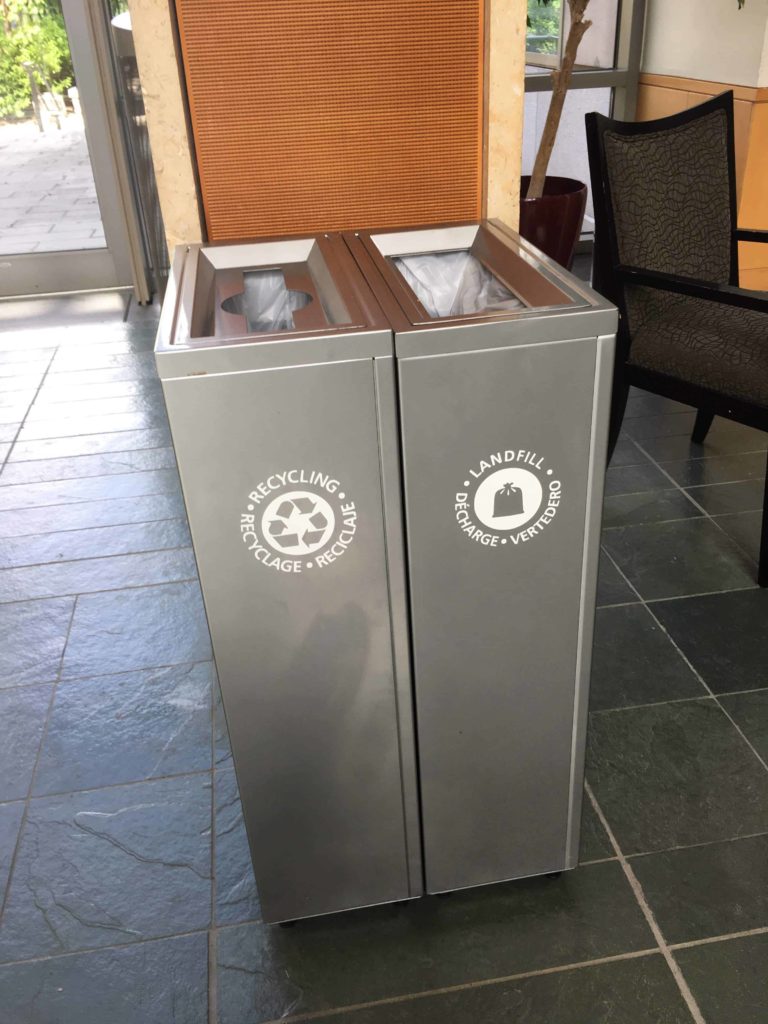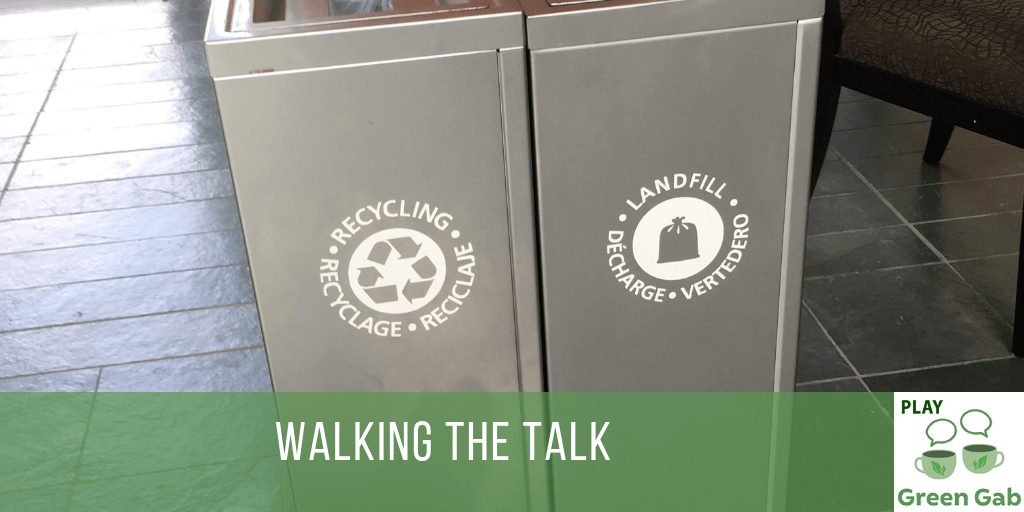

Nothing’s new under the sun. Marla and Tony discuss how the basic principles of green and sustainability have been around for centuries, even since the times of the Greeks and Romans. However, as technology has evolved in our society we have become lazy. We choose convenience over stewardship and then we find ourselves struggling with issues such as water and air pollution, depleted nutrients in our soil, health issues and energy shortages. Marla adds that something else to think about is that there is a huge “people” or humanity aspect to the whole idea of green and sustainability. We must stop and think about the fact that if we’re doing something damaging to the rights of people or people’s health and wellness then we’re not abiding by the Golden Rule.
The older generation tends to get caught up in the mantra of “saving the planet” and perhaps tends to opt out of the green sustainability conversation. Marla encourages everyone to consider the why behind sustainability. Tony adds that as parents we all want a better life for our children. Therefore, walking the talk as parents can mean considering the “why” behind sustainability. Caring for the next generation means making sure they have access to clean water, clean air, safe soil and other resources that provides them and their children the opportunity to live longer, healthier lives. So, if people are not into “saving the planet,” Marla encourages everyone to simply be good stewards of the planet and its resources and be a good neighbor by taking care of each other as fellow human beings. That means sharing what we have with other people and making sure we leave enough resources behind for the generations that come after us.

The Power of Choice
What is new for our society is the younger generation’s demand for transparency and accountability in the marketplace. Millennials are paying close attention to the stories behind the brands, companies, manufacturers and builders they patronize. Before purchasing, consumers today are more apt to research a company’s values and how those values affect the way they conduct business. Millennials tend to choose products, brands and businesses that are involved in the betterment of struggling communities, global social justice issues and the environmental impact of production.
Marla recalls an article titled, “Millennial Women have Strong Purchasing Power. What Influences It?” that talks about the collective purchasing power of millennial women that is reaching a staggering 170 billion in size. The article states the brand story behind a product is extremely important as 41% of those surveyed claimed to know who founded the company and 47% claimed to know the story of origin behind their favorite brand. More importantly, 45% say a primary influencer for them is the brand’s sustainability practices. Today’s young purchasers know how to do their research and are not afraid to leave honest reviews. They also have the power of the internet behind them which can cause a bad review to go viral in the blink of an eye. Now that’s walking the talk!
Getting the Word Out
Tony maintains that in today’s market it’s vital to let the public know how a business benefits the community, how they help and protect the planet and what they are doing to relieve suffering in the world. Tony states that “marketing is not selling, it’s educating, it’s laying the foundation for choice and change,” that’s why letting the public know about a company’s green practices and commitment to sustainability must be highly publicized.
Marla mentions one of her former podcast guests, Kari Klause of Viva Green Homes, whose life mission is to help people find green, sustainable homes. Kari’s marketing strategy is openly based on her personal and corporate values of walking the talk of living sustainably. Another way companies are getting the word out is through a website called GreenBiz that publishes information on corporate sustainability. Large companies readily participate in these types of websites as they understand they must market to the demand for green sustainable homes and products.
From Stockholders to Stakeholders
Tony recalls back in the day a company’s responsibility used to be the fiduciary duty to the stockholders to turn a profit. With the effects of globalization there’s a shift of importance from the stockholders to the stakeholders. While stockholders are still major influences, they are not the only influences. Today’s consumers base purchasing decisions on how the company treats its employees, trade partners, suppliers, and the community at large. They monitor trade practices and manufacturing policies, and because these are publicly traded companies it’s easy to uncover the truth.
The trend of sustainability has had major positive effects on corporations. People like to demonize Wal-Mart but they are now one of the largest providers of sustainable energy. They are also leading the way in developing a sustainability label and working with their supplier for complete transparency and chain of custody in the products they are putting on the shelves. Likewise, McDonald’s is working with Global Roundtable for Sustainable Beef (GRSB), that works toward environmentally sound beef production, protection of animal health and welfare, and improves farmer and community livelihoods. Some of the companies that we assume aren’t doing much are surprisingly on the forefront of change.
How to Walk the Talk
Everyone can do something. Simple things you can do in your office is adding plastic, aluminum and paper recycling containers, purchasing energy star office equipment and using LED light bulbs. If you’re in the building trades you might think of providing for on-sight recycling of construction waste, as well as re-using and repurposing construction waste. In the home, a good place to start is by purchasing toilette paper made from recycled paper, installing control and automation technology that turn lights, heating and cooling systems on and off at certain times of the day. The important thing is to walk your own talk through everyday green choices and to follow the millennials lead by making purchases from green sustainable companies who care about humanity and the planet.
Everyday Green Home – Everything you need to create a stylish, safe & healthy home… Easily.
Millennial Women Have Strong Purchasing Power. What Influences It?
World’s Most Sustainable Companies, 2018
U.S. Top 10 Green Ranking Companies
17 Top Companies That are Going Green in 2018
Find Your Home That Enriches Your Live – Kari Klaus of Viva Green Homes
McDonald’s Beef Sustainability
NEW! Products for a healthier home & world, without the hassle: Shop Everyday Green Home
Get my award winning book Living Green Effortlessly: Simple Choices for a Better Home, now available on Kindle!
Subscribe, share and leave a review on Apple Podcasts and get the show notes on The Green Gab Podcast. Questions, thoughts or just want to get in touch? Marla – marla@greenhomecoach.com
Download our Healthier Home checklist to start living in a healthier, better home today!
At Green Home Coach, helping you to create and discover healthier, more comfortable homes is what I do. I work with home professionals – designers, builders, realtors, and more; home owners and dwellers … just about anyone that works with a home in some way.
© Green Home Coach 2025 | An Oakes Creative House Site | Privacy Policy | Terms of Service
Photography by SLPhotography | Home page image provided by Chelsey Seaton Photography